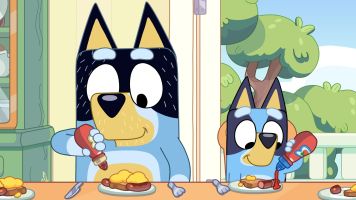
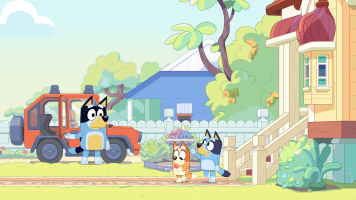
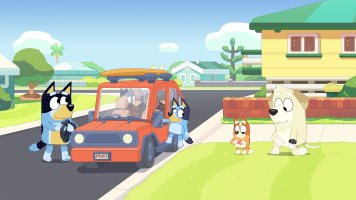
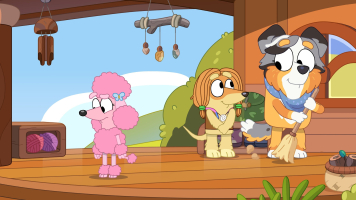
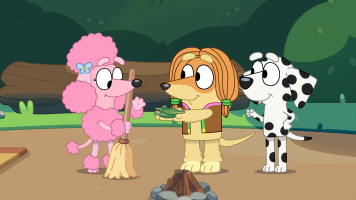
Review
Unleashing Joy with Six-Year-Old Bluey and Family
The vibrant landscape of children’s television has flourished with imaginative characters and compelling narratives, but very few have managed the universal appeal of Bluey, the Australian animated show that has not only conquered the hearts of its young audience but also won the respect and adoration of parents worldwide. This simple yet brilliant series, centered around an exuberant Blue Heeler dog named Bluey and her adventures, transcends the average kiddie fare, offering well-scripted stories that warmly embrace the complexities of family life. In this review, we dive into the world of Bluey, where each seven-minute episode is a masterpiece of playful learning and heartfelt moments.
The Wonders and Whims of The Heeler Household
At its core, Bluey is a shining example of how to create engaging content for children without underestimating their intelligence. With compelling storylines that merge everyday situations with imaginative play, the show champions creativity and the importance of play in the development of children. Yet, even within its brightly colored frames, Bluey isn’t flawless. The show has faced criticisms that touch on universal parental insecurities — mainly stemming from Bandit, the nearly impeccable, game-playing father. His perpetual perfection in playtime sets a high bar, which, despite being aspirational, can sometimes leave parents feeling inadequate in comparison.
Furthermore, the show's original portrayal of gender roles has sparked debates, particularly regarding the limited screen time and character depth of Bluey's mother, Chilli, compared to the ever-involved Bandit. While subsequent seasons have aimed at balancing these roles, presenting Chilli as more than just a background character, the early episodes carry that undercurrent of imbalance. Additionally, the initial lack of cultural diversity in the cast was met with raised eyebrows, prompting the creators to address these concerns in more recent episodes by introducing characters with different backgrounds.
Embracing Bluey’s World with a Touch of Reality
As Bluey pirouettes into the hearts of viewers, it carries a blend of praise and critique. Fans marvel at the show’s ability to deliver profound life lessons wrapped in simplicity and humor. It's a rare gem that prompts laughter and sometimes tears, as it resonates with children and adults alike. Many viewers have noted that Bluey has sparked conversations about parenting styles, societal expectations, and finding joy in the mundane. The realistic representation of family dynamics and the clever inclusion of adult-oriented humor make it a multigenerational favorite.
Yet, even with its glowing reception, the show is not immune to the occasional parental unease, as some criticize Bandit's superhero-like parenting, which seems unattainable to many. Such portrayals, though fictional and intended to entertain, inadvertently serve as a mirror to the audience's own lives, reflecting both light and shadows. Despite its minor shortcomings, Bluey triumphs by opening dialogues about self-improvement and self-acceptance among parents and carers. As new seasons and episodes make their way onto our screens, they bring with them an opportunity to witness the evolution of characters and, perhaps, of ourselves.
Recommended



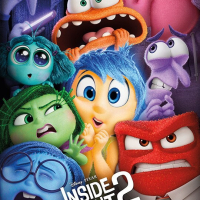

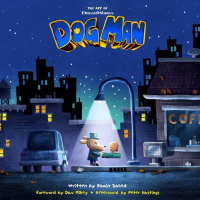








Leave a comment
Your comment is awaiting moderation. We save your draft here
0 Comments